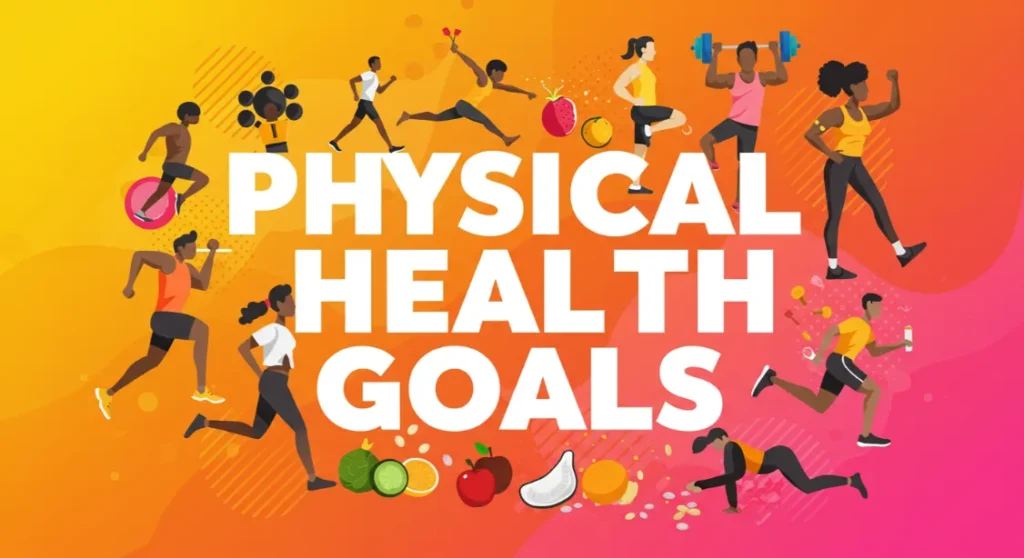Everyone wishes for a longer life filled with vigor and health. Here are the 5 habits that lead to a longer healthier life.
We all want to live longer and better, but sometimes our busy lives get in the way. I’ve found that prioritizing sleep, eating more plants, engaging socially, and playing a musical instrument regularly can help you live a longer life. If you’re up for trying something new every day, great! But even if not, there are plenty of ways to improve your health and longevity without drastically changing your daily routine.
⚡ Key Takeaways
- Adopt 5 Core Habits: A major study identified five key lifestyle factors for longevity: never smoking, maintaining a healthy BMI (18.5-24.9), getting 30+ minutes of daily exercise, drinking alcohol in moderation, and eating a healthy diet.
- Gain a Decade: Individuals who followed at least four of these five habits lived, on average, over 10 years longer than those who did not.
- Drastically Reduce Disease Risk: These habits significantly lower the chances of being diagnosed with major illnesses like diabetes, cancer, and heart problems.
- Build Resilience: While not making you immune, a healthy lifestyle makes it much harder to develop serious diseases and helps you stay healthier for longer even after a diagnosis.
- Start with Consistency, Not Perfection: You don’t need to overhaul your life overnight. Focus on incorporating these positive habits step-by-step for lasting impact.
- Prioritize Foundational Health: Beyond the five habits, the article also highlights the importance of quality sleep, a plant-rich diet, and strong social connections for overall vitality.
Extend your life expectancy with five healthy lifestyle habits.

Diabetes and cancer are consistently two of the most significant causes of deaths worldwide every year. However, there’s an easy way to prevent these chronic illnesses. A landmark study by a team of researchers from around the world that was published in the British Medical Journal identified five key habits of a healthy lifestyle that can extend people’s lives by 10 years and dramatically decrease the chance that they will be diagnosed with diabetes, cancer, and heart problems.
The study involved tens of thousands of UK males and females who were asked about their choices regarding their lifestyle in the early 1980s, with follow-up surveys sent out every two years, asking respondents if they had experienced any serious ailments. Based on the responses, researchers identified the five essential habits for living a longer and more healthy life.
If you’re a regular user of this website, there’s a good chance that you’ve already adopted many of these. They’re:
- Never smoked
- Being a healthy body mass index of 18.5 to 24.9
- At least 30 mins of moderate-to-vigorous workout each day
- Moderation in drinking alcohol
- Eating a healthy diet
Women and men who followed at least four of the five practices lived an average of more than 10 years longer than people who did not and maintained a healthy life for the most part. According to 2026 research, an active lifestyle doesn’t mean that people are immune to illnesses, but it significantly reduces their risk of developing chronic diseases compared to unhealthy people. Additionally, healthier individuals diagnosed with diseases maintained their health and functional longevity for a longer period after diagnosis than those living an unhealthy lifestyle.
5 habits that lead to a longer healthier life
The power of positive habits is a foundational theme in self-help literature. From Mark Twain’s famous line, “Habit is habit, and not to be flung out of the window by any man, but coaxed downstairs one step at a time,” to the influential work of Charles Duhigg, author of The Power of Habit: Why We Do What We Do in Life and Business, we understand how our daily routines fundamentally shape our health and longevity.
We all want to be healthier, but it can be hard to find the motivation. Here are five simple habits that will make you feel better both physically and mentally:
Healthy Eating-Healthy Diet

Adopting a nutritious diet is one of the most powerful actions you can take for your long-term health. The proven benefits of a healthy diet include a substantially reduced risk of developing chronic diseases and maintaining a healthy weight for life.
There are several key strategies to adopt a healthy diet. First, focus on consuming plenty of fruits and vegetables. These whole foods contain essential nutrients for optimal health, such as vitamins, minerals, and fiber. They promote satiety after meals, which helps prevent overeating.
Second, choose healthy protein sources, such as lean meats, fish, eggs, and beans. These foods are rich in nutrients essential for good health and can help you feel fuller for longer.
Third, limit your intake of unhealthy fats, such as saturated and trans fats. These fats can increase your risk of chronic diseases like heart disease and stroke. Instead, prioritize healthy fats from sources like olive oil and avocados.
Fourth, limit your intake of sugar-sweetened beverages. These drinks are high in calories and can contribute to weight gain. Rather than sugary drinks, opt for water or unsweetened tea or coffee.
Finally, make sure to get plenty of exercise. Regular physical activity is crucial for maintaining a healthy weight and reducing disease risk. If you’re new to exercise, start by adding simple activities to your daily routine, such as taking a brisk walk or riding a bike.
Regular Exercise
The benefits of regular exercise are well-documented, including improved mental health, increased lifespan, and better cardiovascular and cognitive function. However, according to 2026 CDC data, only about 23% of US adults meet the weekly physical activity guidelines.
Regular exercise is one of the most important things you can do to stay healthy. It can help you prevent or manage many health problems, including heart disease, type 2 diabetes, and some cancers.
If you’re not already exercising regularly, it’s never too late to start. The key is choosing an activity you enjoy—this boosts motivation for consistency and helps prevent injuries and burnout.
The best way to get the benefits of regular exercise is to do 150 minutes of moderate-intensity aerobic activity each week (or 75 minutes of vigorous-intensity activity) plus two days of strength exercises that work all the major muscles (legs, hips, and back). Every week should include two or three days to build up your activity level.
For example,
- I walk to work instead of taking the bus or subway.
- Aerobics class at least twice weekly (or a DVD at home).
- a game of tennis or badminton with friends on Friday evening.
- Swimming laps at your local pool during your lunch break once a week
Not smoking.
Smoking is the most important preventable cause of premature death in the United States. Using cigarettes kills more Americans than alcohol, car accidents, HIV, guns, and illegal drugs combined.
When you smoke, your body slowly begins to break down. Cigarette smoke contains over 7,000 chemicals, including about 70 that can cause cancer. These cancer-causing chemicals damage your body’s cells and prevent them from working properly. They also damage the DNA in your cells, which can lead to cancer.
Smoking is linked to many different types of cancer, including lung cancer, throat cancer, mouth cancer, pancreatic cancer, bladder cancer, kidney cancer, and cervical cancer. It’s also linked to leukemia and other cancers of the blood. If you smoke cigars or pipe tobacco, you’re also at an increased risk for developing these cancers.
Smoking damages nearly every organ in your body. It raises your risk of heart disease, stroke, and lung diseases such as COPD (chronic obstructive pulmonary disease), emphysema, and bronchitis. It also increases your risk of several other conditions, such as osteoporosis (weak bones), cataracts (cloudy lenses in your eyes), and rheumatoid arthritis (joint inflammation).
Quitting smoking is one of the best things you can do for your health—no matter how long you’ve been smoking. You’ll start to see health benefits as soon as you quit smoking and continue to see more over time.
Prioritize sleep.

Sleep is a crucial part of your health, and it deserves to be treated as such. This habit can be difficult for some people because they have trouble sleeping or have other obstacles that stand in the way of restful sleep. If you constantly wake up during the night, check out this article on how to get better sleep.
If you’re not sure how much sleep is enough or too much, plenty of online resources can help with that. Here are a few:
- WebMD provides information about how much sleep different age groups need based on their activity levels, what time they wake up in the morning, etc. You can also use their calculator feature to find out whether or not your current schedule will cause problems down the road (such as memory loss).
- Sleepytime gives suggestions based on age groups and categories, like shift workers who need more alert throughout their workday than usual due to erratic schedules. “
Maintain healthy body weight.
Being overweight or obese is associated with an increased risk of heart failure, and losing weight can help reduce this risk. If you are overweight, aim for a 10% reduction in your body weight. For example, if you weigh 200 pounds, try to lose 20 pounds.
If you have heart failure, losing 5–10% of your body weight may reduce symptoms and improve exercise tolerance. This is especially important for overweight people when they develop heart failure.
Your body weight is a simple metric. It doesn’t distinguish between fat and muscle. A 200-pound athlete and a 200-pound sedentary person share the same number on the scale.
If you have a normal BMI, you’re at a healthy weight for your height. You have excess body fat but not too much if you’re overweight. If you’re obese, you have abnormal or excessive body fat.
To maintain a healthy weight:
- Eat a variety of foods that are low in fat and high in fiber.
- Choose mostly plant-based proteins, such as legumes (beans), lentils, and chickpeas.
- Eat more nuts, seeds, and unsalted nuts to provide protein and essential fats.
Try something new every day.

“Try something new every day” might sound like a lot to ask, but it’s not that hard. If you can’t think of anything to do, pick up a book or magazine and flip through it. There’s probably at least one thing in there that will spark your interest!
If you’re looking for something more specific, try taking up something like kiteboarding or learning to cook Thai food—both can be done cheaply online (and outside). And if you’re worried about being too old to start something new? Think again: studies show that people who keep learning throughout their lives are happier than those who don’t learn anything new after age 25!
It’s possible to live longer and better by making simple lifestyle changes.
It’s possible to live longer and better by making simple lifestyle changes.
- Eat more vegetables. Studies have shown that people who eat lots of veggies are less likely to die from cancer, heart disease, or stroke. The antioxidants and fiber in fruits and vegetables help you feel full on fewer calories and reduce your risk of diabetes. Add one serving of fruit or vegetables to each meal (or even a snack).
- Be active every day, even if it’s just walking around the block after work or getting off the bus at the next stop so you can walk up one hill instead of two hills back home! Anything counts! Even if it feels like too much effort when you start doing it, within a week or two, you will feel great about sticking with it, encouraging you to keep going!
Frequently Asked Questions
What are the 5 proven habits for a longer life?
According to a major study in the British Medical Journal, the five key habits are: never smoking, maintaining a healthy BMI (18.5-24.9), getting at least 30 minutes of daily exercise, drinking alcohol in moderation, and following a healthy diet. Adopting these can extend life by over a decade.
How much longer can you live by following these habits?
The research indicates that individuals who follow at least four of the five core healthy habits can live, on average, more than 10 years longer than those who do not adhere to them. Consistency in these areas provides a significant longevity boost.
Do these habits really reduce the risk of major diseases?
Yes, the study found these five lifestyle factors dramatically decrease the chance of being diagnosed with serious illnesses like diabetes, cancer, and heart problems. They build resilience and make it harder for such diseases to develop.
What counts as “moderate-to-vigorous” daily exercise?
The study specifies at least 30 minutes per day of activity that raises your heart rate. This includes brisk walking, running, cycling, or swimming. The key is consistent, daily movement that challenges your cardiovascular system.
Do I need to be perfect in all five habits to see benefits?
No. The research shows following at least four habits provides the major longevity gain. The article emphasizes starting with consistency, not perfection. Incorporate these positive changes step-by-step for a lasting impact on your health.
What other factors support longevity besides the core five?
The article also highlights the importance of quality sleep, eating a plant-rich diet, maintaining strong social connections, and engaging in activities like playing a musical instrument for overall vitality and a healthier life.
Conclusion
If you want to live a longer, healthier life, there are plenty of things that you can do. We hope that by reading this article and learning about these five habits, you’ll be inspired to make some positive changes in your own life.
